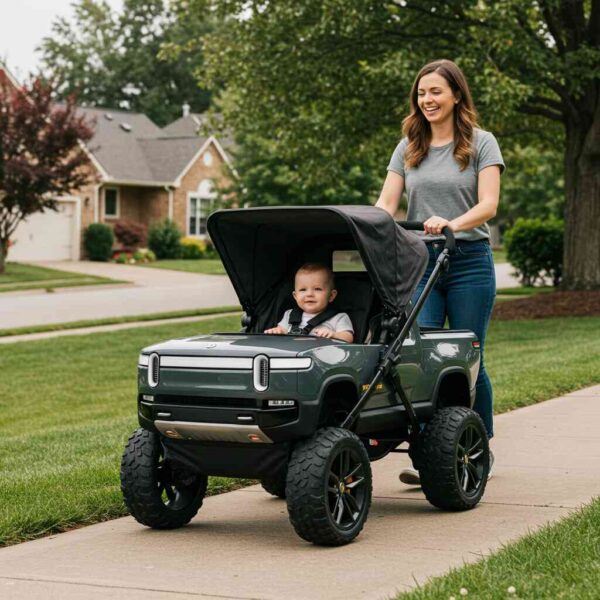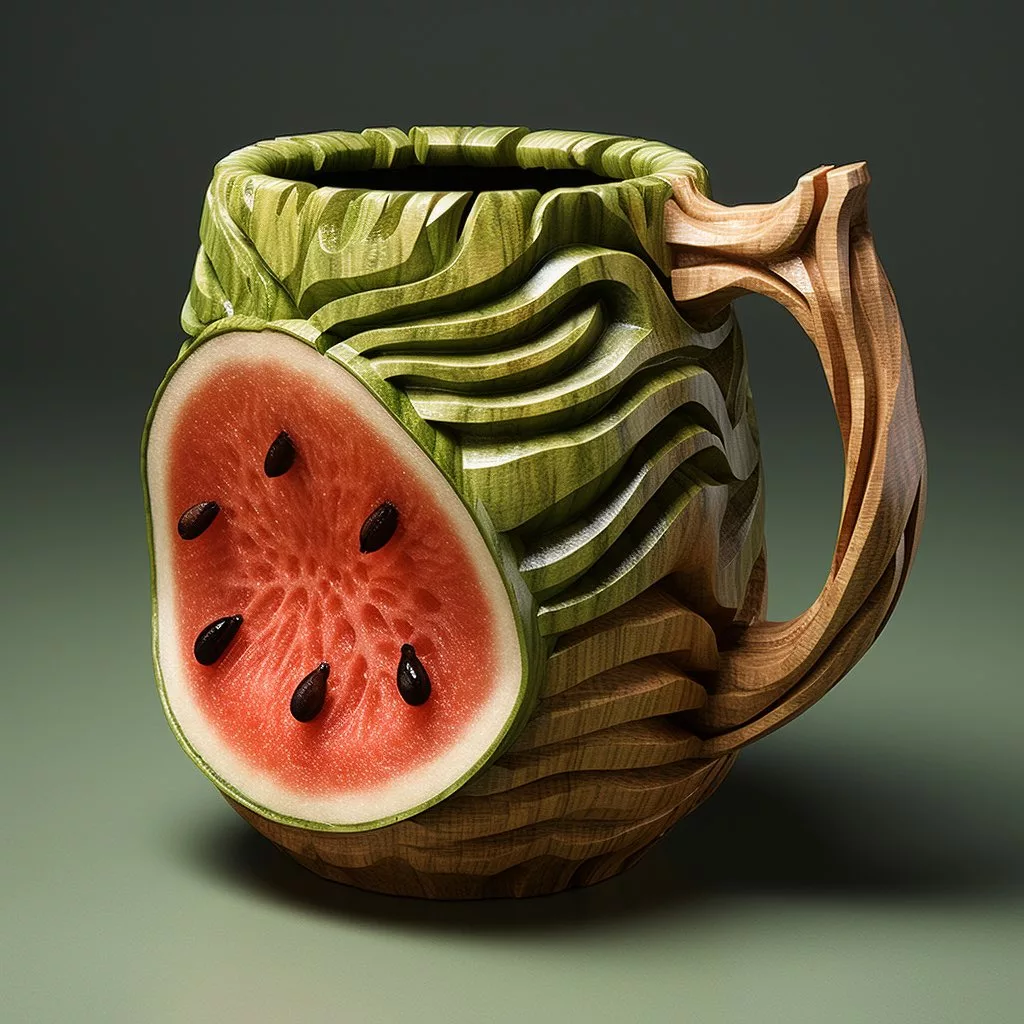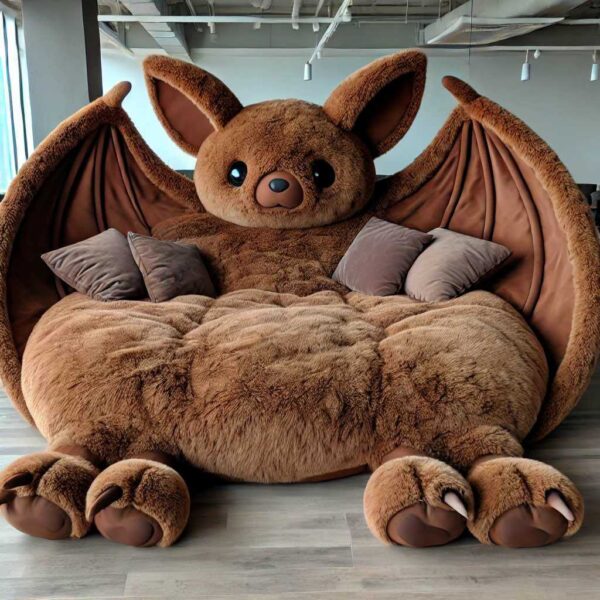In recent years, a unique and innovative concept has captured the imagination of outdoor enthusiasts, parents, and adventurers alike: pickup truck strollers. These specialized devices represent a creative intersection between utility vehicles and child transportation systems. Designed to securely attach to the bed or tailgate of a pickup truck, these strollers offer an unconventional yet practical solution for families who enjoy spending time outdoors, traveling on rugged terrain, or exploring nature beyond the confines of paved roads.
The idea behind pickup truck strollers is not just about convenience—it’s about redefining how we think about mobility, accessibility, and family-friendly design in outdoor environments. Whether navigating trails, attending festivals, or simply enjoying a day at the beach, pickup truck strollers provide a novel way to bring children along without compromising on adventure. Their growing popularity speaks to a broader cultural shift toward blending functionality with fun, especially among families who prioritize active lifestyles and outdoor experiences.
This article delves into the many dimensions of pickup truck strollers, examining their design innovations, their role in enhancing outdoor activities, and their potential as tools for inclusive parenting. By exploring each of these areas in depth, we aim to highlight the true versatility of these devices and understand why they have become more than just a niche product—they are a symbol of modern adaptability and creative problem-solving.
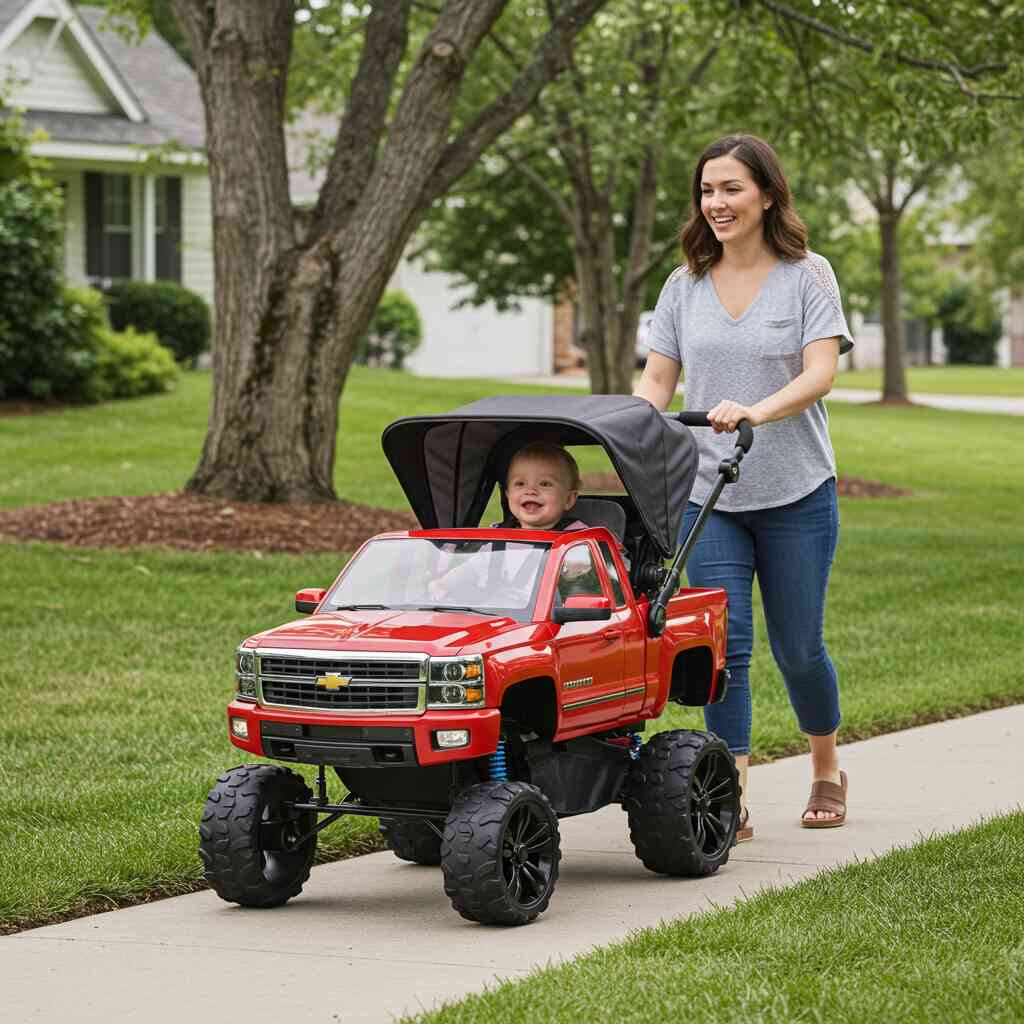
Contents
Part I: Design Innovations Behind Pickup Truck Strollers
At first glance, the concept of a stroller that attaches to the back of a pickup truck may seem unusual, but when examined closely, it reveals a thoughtful approach to engineering and design. The development of pickup truck strollers is rooted in addressing specific challenges faced by families who frequently engage in off-road adventures, camping trips, or other outdoor excursions where traditional strollers may be impractical or unsafe.
One of the most notable design features of pickup truck strollers is their modular construction. Unlike standard strollers that rely solely on wheels and a frame, these units are often designed to integrate seamlessly with the structure of a pickup truck bed or tailgate. This integration typically involves secure mounting mechanisms such as adjustable brackets, straps, or even custom-fit attachments that ensure stability during movement. Some models also incorporate shock absorption systems to minimize jostling and provide a smoother ride over uneven terrain.
Another key innovation lies in the materials used for construction. Given the rugged environments these strollers are intended for, manufacturers often opt for durable, weather-resistant fabrics and lightweight yet strong metals. This ensures that the stroller can withstand exposure to dirt, dust, rain, and sun without deteriorating quickly. Additionally, many designs include removable covers or UV-protected canopies to shield children from the elements while allowing for easy cleaning and maintenance.
Ergonomics also play a significant role in the design process. Pickup truck strollers must balance comfort with safety, ensuring that children are both protected and comfortable during transport. Features such as padded seating, adjustable recline positions, and harness systems similar to those found in car seats are commonly incorporated. These elements contribute to a safer and more enjoyable experience, particularly on longer journeys or rougher paths.
Perhaps one of the most intriguing aspects of pickup truck stroller design is the emphasis on customization. Many models allow users to tailor the setup based on the type of vehicle being used, the age and size of the child, and the intended activity. For instance, some strollers come with detachable compartments for gear storage, while others feature convertible components that allow them to be used independently as regular strollers or even as portable loungers.
These design advancements collectively demonstrate a deep understanding of user needs and environmental conditions. They reflect a commitment to innovation that goes beyond aesthetics—focusing instead on solving real-world problems through smart engineering and thoughtful design choices. As a result, pickup truck strollers have evolved from a quirky idea into a well-thought-out solution for families seeking greater freedom and flexibility in their outdoor pursuits.
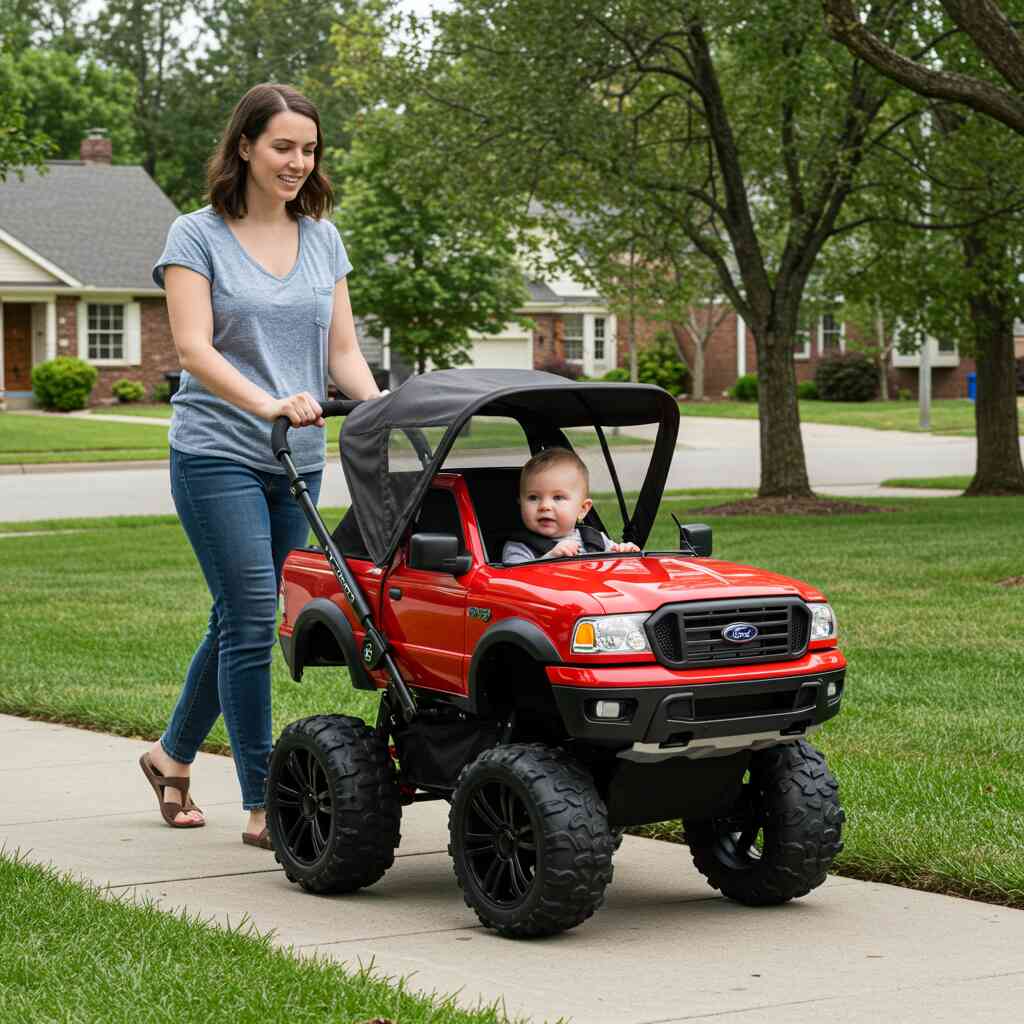
Part II: Enhancing Outdoor Experiences Through Pickup Truck Strollers
Beyond their impressive design, pickup truck strollers serve a critical function in expanding the possibilities of outdoor recreation for families. One of the primary reasons these strollers have gained traction is their ability to facilitate access to environments that would otherwise be difficult to navigate with young children. Traditional strollers, while effective on smooth surfaces, often struggle with sand, gravel, mud, or steep inclines. Pickup truck strollers eliminate this barrier by leveraging the mobility and durability of trucks, allowing families to explore terrains that were previously off-limits.
For example, consider a family planning a weekend trip to a remote hiking trail or a beach known for its soft, shifting sands. In such scenarios, carrying a child in a backpack or attempting to push a standard stroller across challenging ground can be exhausting or even dangerous. With a pickup truck stroller, however, the parent can drive directly to the location and then deploy the stroller within the truck bed or tailgate area, providing a safe and stable environment for the child throughout the journey.
Moreover, these strollers enable parents to maintain a sense of normalcy and routine while engaging in adventurous activities. Children can nap, snack, or simply observe their surroundings from a familiar and secure space, reducing stress for both the child and caregiver. This is especially valuable for extended outings or multi-day trips where comfort and consistency are essential for maintaining a positive experience.
Another compelling use case involves community events and gatherings held in open spaces such as parks, fairs, or outdoor concerts. Parking spaces may be far from the event site, and pushing a conventional stroller across large fields or unpaved lots can be cumbersome. A pickup truck stroller allows families to arrive closer to the action and transition smoothly from vehicle to venue, minimizing fatigue and maximizing enjoyment.
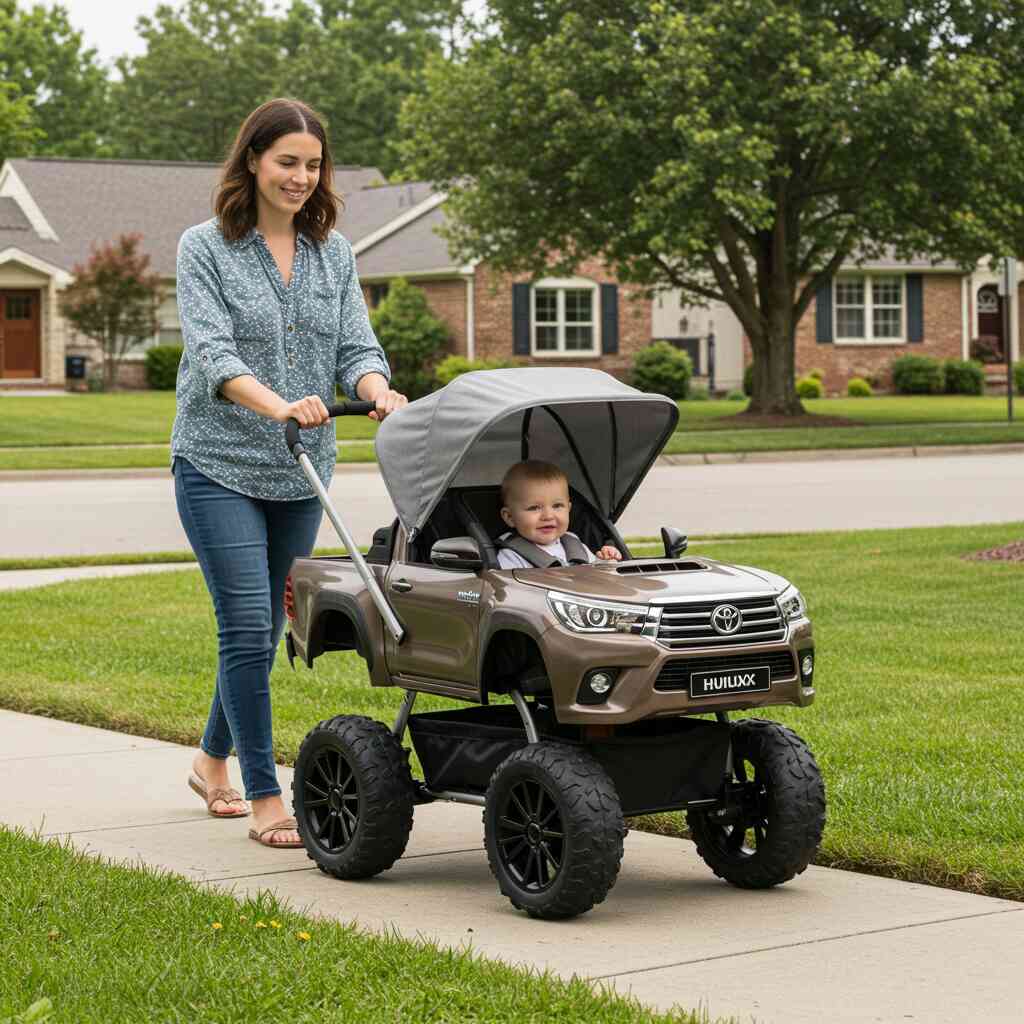
Additionally, pickup truck strollers can play a role in fostering early childhood education and environmental awareness. By enabling parents to take their children into natural settings—forests, beaches, deserts—without logistical constraints, these strollers encourage hands-on learning and sensory exploration. Children can hear birdsong, feel the texture of sand or grass, and witness wildlife up close—all from the comfort and safety of their mobile seat.
From a social perspective, pickup truck strollers also promote inclusivity and shared experiences. They make it easier for multiple generations to participate in outdoor adventures together, whether it’s grandparents joining a family camping trip or friends coordinating group excursions. The ability to comfortably transport young children opens the door for larger, more diverse groups to enjoy nature together, strengthening bonds and creating lasting memories.
Furthermore, these strollers can support therapeutic applications. Families with children who have special needs or require additional physical accommodations may find that pickup truck strollers offer a viable alternative to traditional mobility aids. The stability and adaptability of these strollers can be tailored to meet specific requirements, allowing children with varying abilities to join in outdoor activities alongside their peers and loved ones.
Ultimately, pickup truck strollers do more than just move children from one place to another—they empower families to embrace adventure, foster connection with nature, and create meaningful experiences that might otherwise be inaccessible. By removing physical barriers and introducing new levels of convenience, these strollers are reshaping what it means to explore the great outdoors with young children.
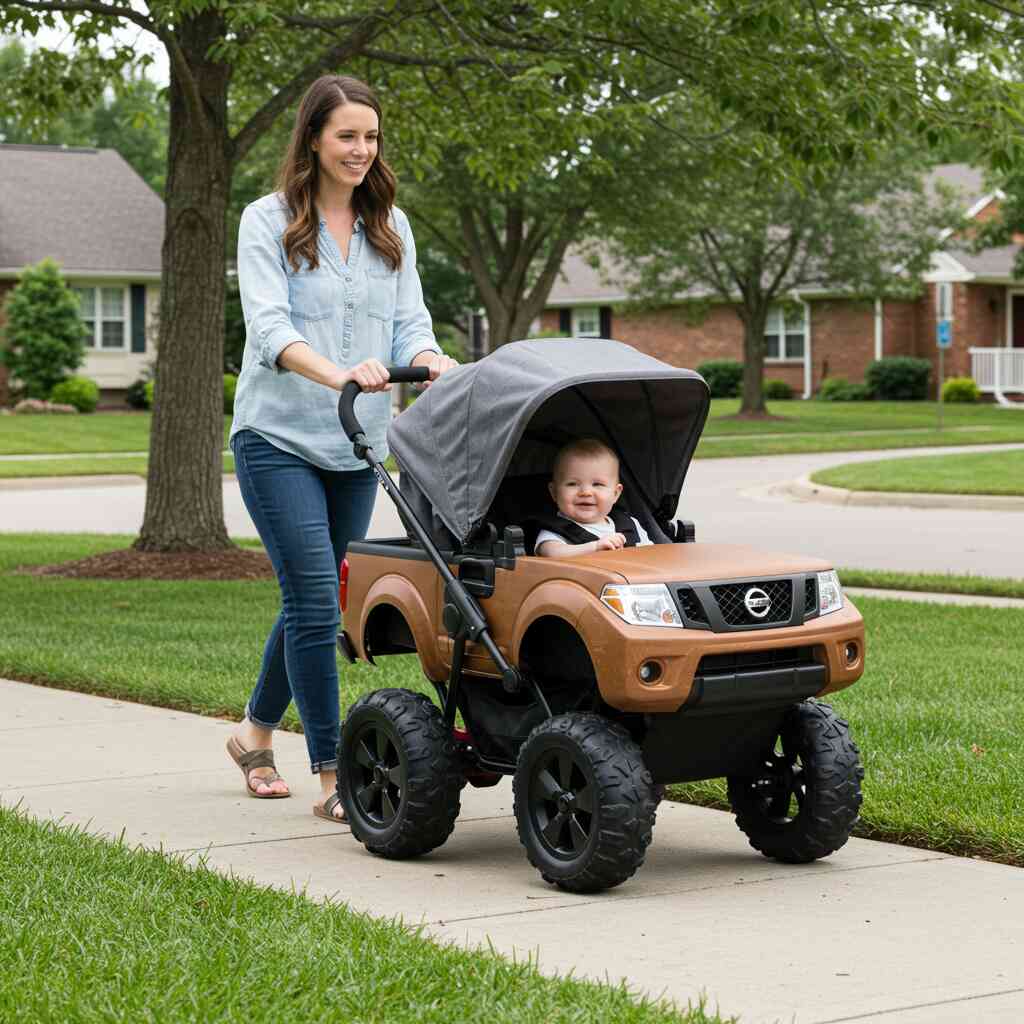
Part III: The Role of Pickup Truck Strollers in Inclusive Parenting and Lifestyle Flexibility
As society continues to evolve in its understanding of parenting and lifestyle diversity, pickup truck strollers stand out as a tool that supports a wide range of family dynamics and personal preferences. These strollers cater not only to traditional nuclear families but also to single parents, blended families, and individuals who lead unconventional lives centered around travel, exploration, or outdoor work.
One of the most impactful ways pickup truck strollers contribute to inclusive parenting is by accommodating different caregiving styles. For instance, parents who prefer a minimalist approach to parenting—those who value simplicity, self-reliance, and a connection to nature—may find that pickup truck strollers align perfectly with their values. These strollers eliminate the need for bulky, high-tech baby gear, offering instead a streamlined, functional solution that blends seamlessly with an active lifestyle.
Similarly, for parents who work in outdoor professions such as agriculture, construction, or environmental conservation, pickup truck strollers provide a practical way to involve their children in daily routines. Rather than leaving children behind or relying on external childcare, these strollers allow kids to accompany their parents to job sites, farms, or fieldwork locations. This not only strengthens family bonds but also introduces children to real-world skills and responsibilities from an early age.
Pickup truck strollers also support gender-neutral parenting approaches. Historically, certain types of outdoor gear and transportation methods have been marketed primarily toward fathers or male caregivers. However, the design and utility of pickup truck strollers appeal equally to all genders, promoting a more balanced and shared approach to childcare and outdoor engagement. Mothers, fathers, non-binary parents, and guardians of any gender can utilize these strollers with equal ease, reinforcing the idea that adventure and exploration are not limited by societal roles.
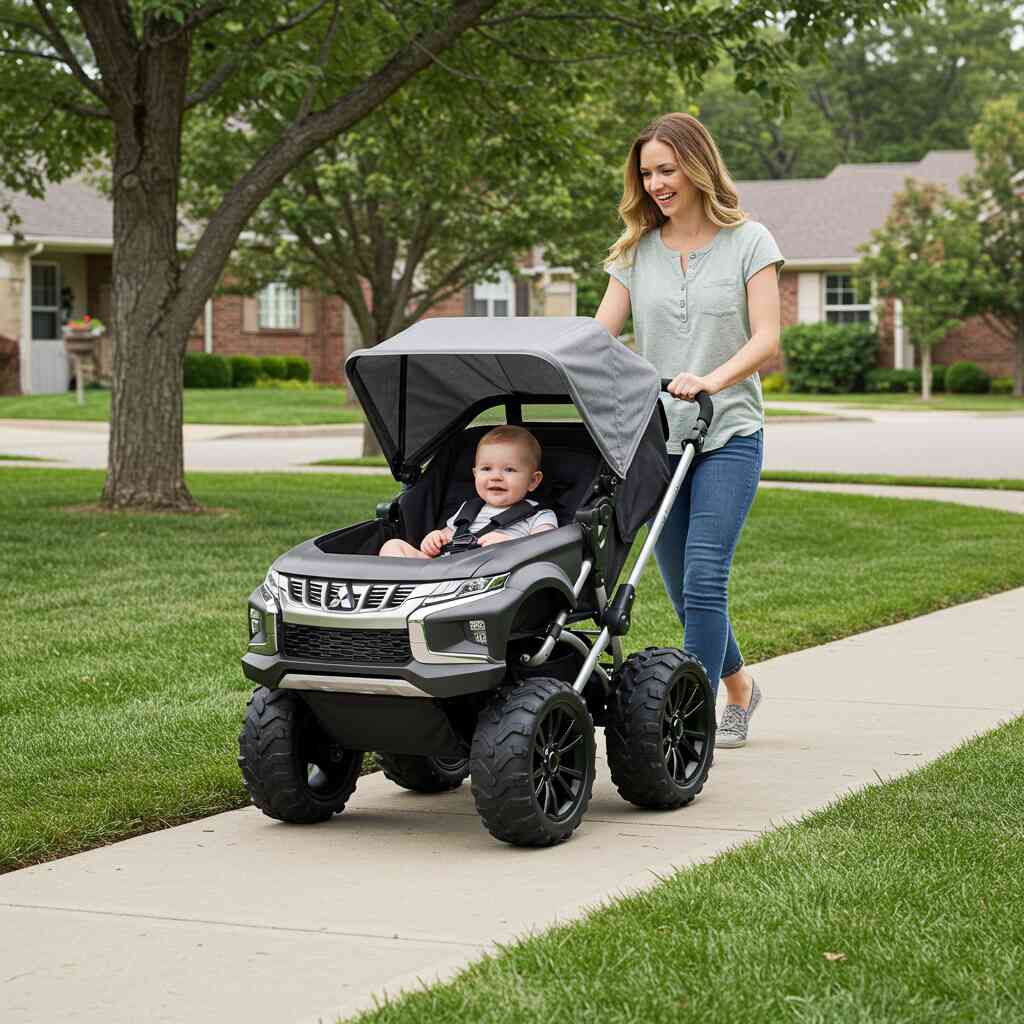
Another important aspect of inclusivity is accessibility. While traditional strollers may pose challenges for parents with physical disabilities or limitations, pickup truck strollers offer an alternative that reduces strain and increases independence. The ability to load and unload the stroller with minimal effort, combined with the supportive structure of the truck itself, makes these strollers a viable option for caregivers who may struggle with lifting, pushing, or maneuvering heavier equipment.
Moreover, pickup truck strollers encourage intergenerational bonding. Grandparents, aunts, uncles, and older siblings can all play a role in transporting and caring for younger children using these strollers. Their intuitive design and ease of use mean that anyone in the family can operate them, regardless of experience level. This fosters a sense of collective responsibility and shared joy in raising and nurturing the next generation.
In terms of lifestyle flexibility, pickup truck strollers exemplify the growing trend of hybrid living—where urban and rural, work and leisure, and domestic and exploratory life intersect. Many families today live in cities but seek frequent escapes to nature, or they may reside in rural areas but need to commute to urban centers for work or school. Pickup truck strollers bridge these worlds, offering a versatile mode of transportation that adapts to changing environments and schedules.
They also align with the increasing popularity of vanlife, overlanding, and road-tripping cultures. These lifestyles emphasize self-sufficiency, mobility, and a deep connection to the landscape. Pickup truck strollers enhance this experience by making it possible to bring young children along on long-distance journeys without sacrificing comfort or safety. Whether traversing desert highways, mountain passes, or coastal routes, families can confidently include their youngest members in the adventure.
Finally, pickup truck strollers challenge conventional norms about what constitutes appropriate child transportation. They invite us to rethink assumptions about where children belong, how they should move through space, and what kind of environments are suitable for them. By embracing a spirit of experimentation and openness, these strollers pave the way for a future where parenting is less about fitting into rigid molds and more about adapting creatively to individual needs and circumstances.
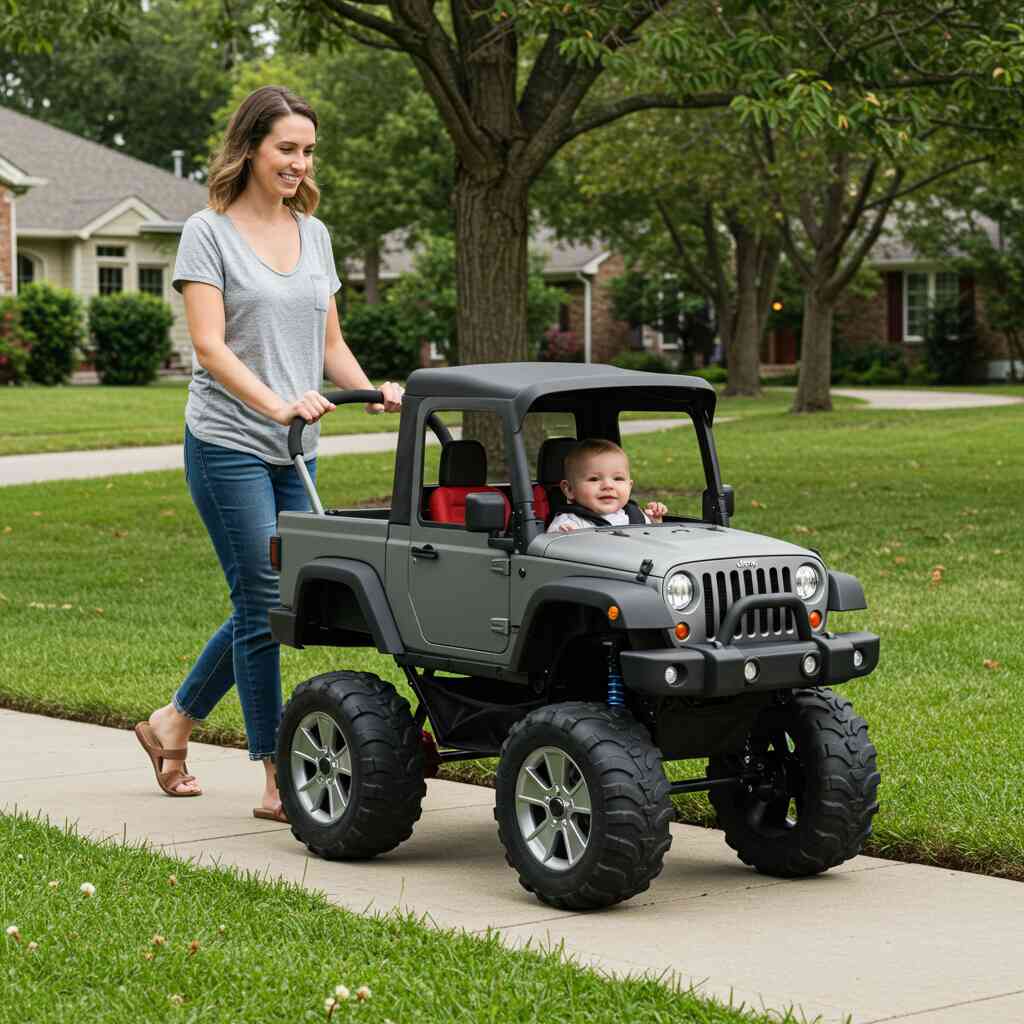
Conclusion
The rise of pickup truck strollers marks a significant evolution in how we approach child transportation, outdoor recreation, and family-centered design. These strollers are more than just a clever invention; they represent a shift in mindset—one that prioritizes adaptability, inclusivity, and a deeper connection to the world around us. Through their innovative design, enhanced usability in challenging environments, and support for diverse parenting styles, pickup truck strollers are redefining what it means to explore, learn, and grow together as a family.
By integrating seamlessly with the rugged capabilities of pickup trucks, these strollers unlock new possibilities for adventure and discovery. They allow families to venture beyond paved pathways and into the heart of nature, where the sights, sounds, and textures of the wild can spark curiosity and wonder in young minds. They also provide a platform for inclusive caregiving, empowering parents of all backgrounds, abilities, and lifestyles to share their passions with their children.
As we continue to seek ways to live more intentionally and connect more deeply with our surroundings, pickup truck strollers serve as a powerful reminder that creativity and practicality can coexist. They challenge us to think outside the box, to embrace unconventional solutions, and to celebrate the unique ways in which families come together to experience the world. In doing so, they not only enhance our outdoor experiences but also enrich the very fabric of family life itself.
In the end, pickup truck strollers are not just about getting from one place to another—they’re about expanding horizons, breaking boundaries, and building memories that last a lifetime.

